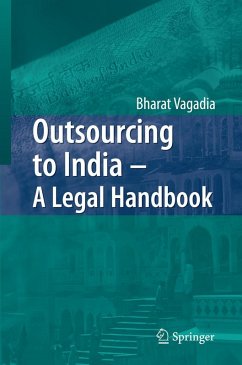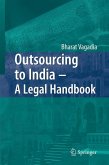For the benefits offered by outsourcing and offshoring, organisations outsourcing to India must however recognise that there are real risks involved, and allocating such risk through a well constructed contract is a crucial step in minimizing such risk. As is the case with respect to any material agreement, the structure of an outsourcing agreement is important because it embodies the rights, remedies, duties and obligations of the parties and provides a blueprint for the parties' relationship.
When contracts transcend national boundaries, the national legal regime of any single country becomes inadequate. When the parties to the contract are located in different countries, at least two systems of law impinge upon the transaction and the rules of International Law come into play. Clauses however addressing certain issues can only be governed by Indian Law.
Specific legal factors around Data Processing, Intellectual Property and staffing implications (TUPE) must also be given careful consideration.
When contracts transcend national boundaries, the national legal regime of any single country becomes inadequate. When the parties to the contract are located in different countries, at least two systems of law impinge upon the transaction and the rules of International Law come into play. Clauses however addressing certain issues can only be governed by Indian Law.
Specific legal factors around Data Processing, Intellectual Property and staffing implications (TUPE) must also be given careful consideration.
From the reviews: "Outsourcing to India: A Legal Handbook is a welcome addition to the library of books on outsourcing to India. ... the book contains information useful to the attorney drafting instruments to be used between a service provider and an outsourcer, and information for the person working on the business side of the outsourcing relationship. ... This book is a solid resource for any professional new to outsourcing because it focuses only on relevant information and concerns both lawyers and business professionals alike." (International Law and Management Review, Vol. 4, 2008)








